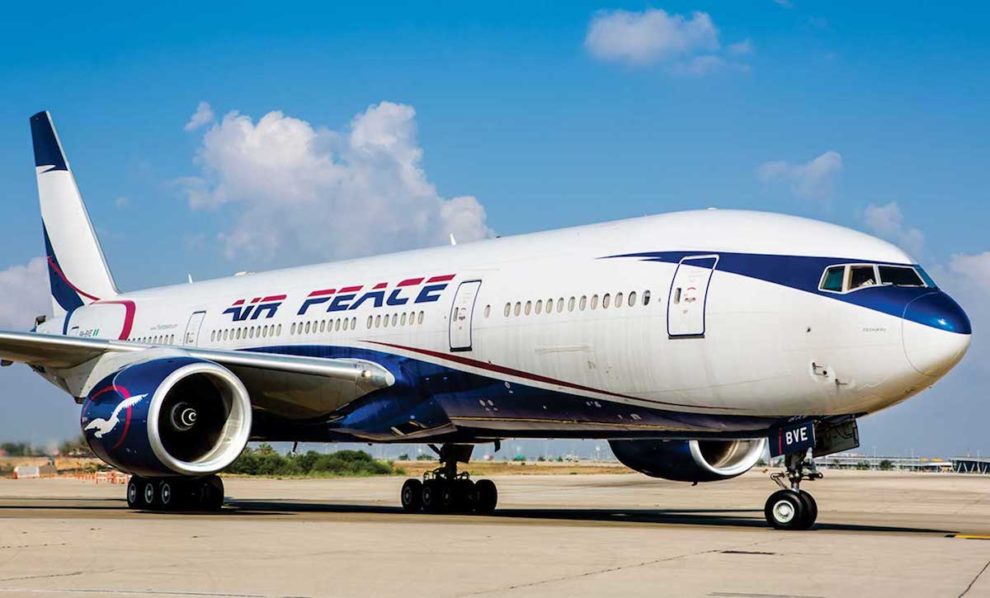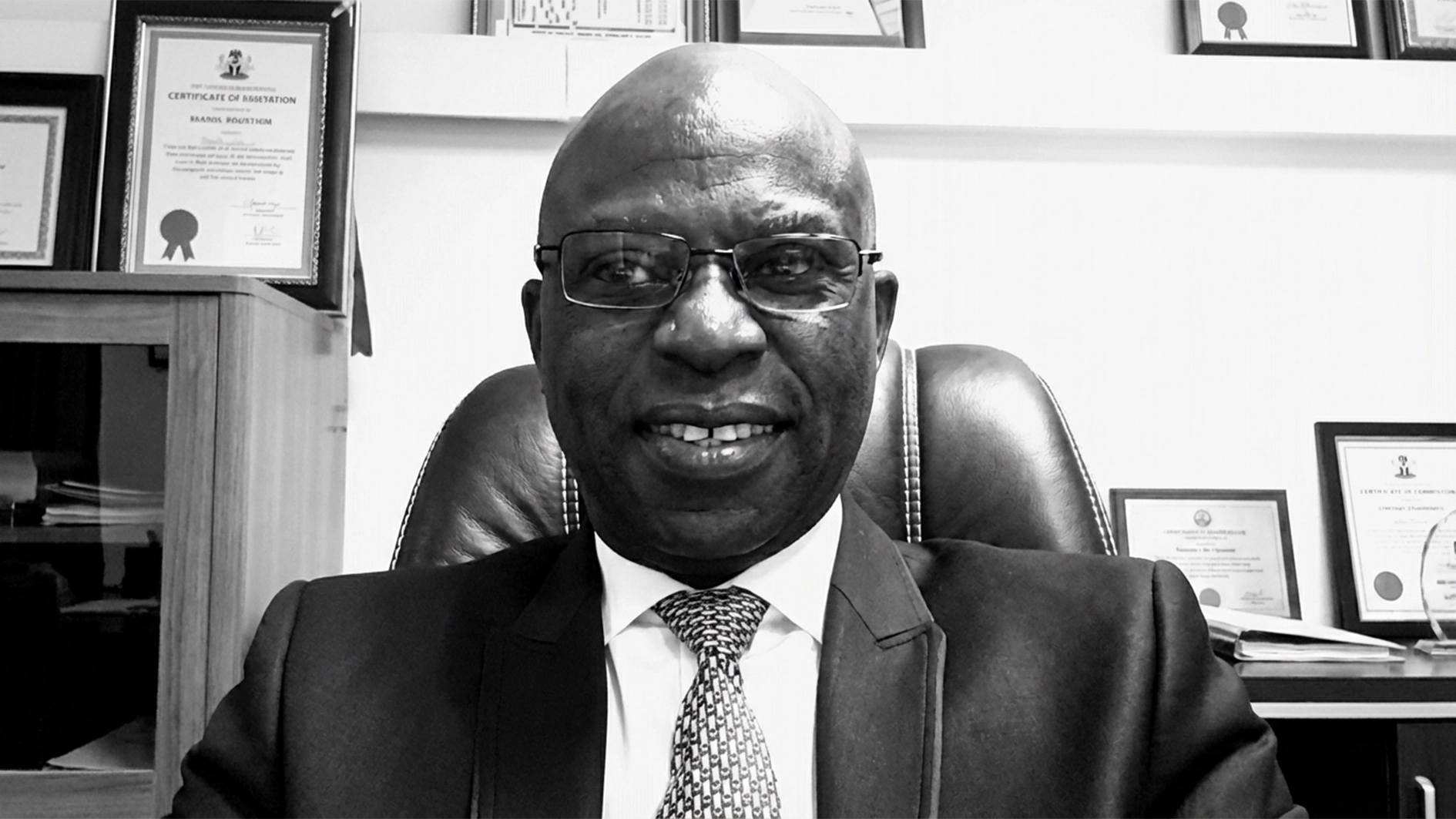
Local carriers may begin to heave a sigh of relief as the Federal Government embraces reciprocity in relating with foreign airlines plying Nigerian routes. But it is still a long way to go without a comprehensive review of commercial agreements that skewed the market in favour of international carriers. WOLE OYEBADE writes.
Call it a child of necessity and you would not be wrong. The Federal Government recently hinted on a tit-for-tat work plan for the aviation sector, to pay back countries that were lately ‘unfriendly’ with Nigerian carriers. It was the first time of admitting that something is wrong with the air trade relations.
Not many stakeholders expected the bold reaction too, given the years of turning a blind eye to alleged rip-offs of the Nigerian market by foreign carriers. Although details of execution are still unknown, there are speculations that Nigeria may deny entry to some major national and flag carriers.
Commendations have been pouring in from stakeholders, who are quite pleased with the pay back drive, at least in the interest of the battered local flag carriers that have for too long gone unprotected. They, however, sought a well tidy and comprehensive and sustainable approach that is without creating rankles in the market and revenue earnings.
Skies have limits
Indeed, it has always been a struggle getting a proper recognition for Nigerian representatives abroad. Most recently, the evacuation of stranded Nigerians from the United Kingdom (UK), by indigenous carrier, hit a brick wall as the UK Government denied Air Peace aircraft a landing permit.
The designated aircraft was initially scheduled to depart Heathrow Airport, London, with about 584 passengers, until the UK’s withdrawal of diplomatic landing clearance, as confirmed by the Ministry of Foreign Affairs.
While Air Peace airline had evacuated over 300 Nigerians from the UK about a fortnight earlier, the reason for the sudden denial remains unclear.
Chairman of the airline, Allen Onyema, explained that all arrangements were made, including payments, “only for the UK authorities to withdraw landing rights close to departure. That was despite strong representations by the Nigerian Government, including pointing out the hardship that would be caused to hundreds of Nigerian evacuees.”
Similar intrigue unfurled in May, when the Canadian Government also stalled the evacuation of 200 Nigerians over alleged conflict of interest in the choice of the operating carrier.
While the Nigerian Government designated Air Peace for the special operation, the Canadian Government had a preference for another airline, though at more expensive fares for the travellers. Air Peace was denied the landing right permits, hence, had to make refunds to travellers.
Recall that the Bilateral Air Service Agreement (BASA) provides for reciprocity by the number of flights and destinations. Not for lack of trying to reciprocate though. It has always been a tale of woes for local airlines on most competitive international markets without the government protection that often sustains national carriers.
An official of Air Peace explained that they had done many international flights, including landing in Canada and the UK successfully.
“We have made 19 flights to the United States since 2014. We have flown to Tel-Aviv several times, and in March, we evacuated over 200 Israelis from Nigeria during this COVID-19 lockdown. We have scheduled flight operations to the United Arab Emirates. We have also flown to the UK, Ireland, China, Turkey, Germany, Iceland, Switzerland and other countries.
“We have IATA Operational Safety Audit (IOSA) certification, and we are a member of IATA. We have also evacuated Nigerians from South Africa during the xenophobic attack of Africans there. We have no reason not to be welcome in any country,” the official said.
For friends only
But the days of reckoning may be here. Already, foreign airlines jostling for the Nigerian routes have begun pre-qualification hurdles ahead of the September 5 resumption date. The hurdle is not unconnected with the decision to allow only airlines whose country had been fair to Nigerian flag carriers during the evacuation exercise.
To that effect, all foreign airlines vying for the lucrative Nigerian routes had been mandated to submit fresh applications for approval by the Ministry of Aviation. The Guardian learnt that more than 15 airlines had submitted applications.
The Aviation Minister, Hadi Sirika, had earlier said that the policy of reciprocity was informed by the ban that some countries placed on carriers from Nigeria, adding that the decision was taken in the interest of the citizenry.
The Chairman of Air Peace airline, Allen Onyema, commended Sirika, for the decision to enforce the principle of reciprocity in granting permission to airlines to resume operations in the country as it opens its airspace.
Onyema said the decision would elevate the image of Nigeria in the comity of nations, and send a signal to international airlines that it is no more business as usual.
“You are causing a positive revolution in the aviation world. You have, by this action, brought so much respect to our people and our nation. Nigerians all over the world are walking tall with enormous pride since the last few hours when the news broke out. This is the beginning of the end of the stigmatisation of Nigeria and everything Nigerian,” Onyema stated in a letter to the Minister
The Group Managing Director, Finchglow Group, Bankole Bernard, also described the Federal Government’s policy of reciprocity as a bold and commendable move that would have no adverse effect on the country whatsoever due to the nation’s huge resources, human capital and economic potential.
Bankole said: “I would say Nigeria is a sovereign nation. I think it’s high time we started to command the respect we deserve from the international community. There is nothing wrong if they say Nigerians cannot come to their countries for whatever reasons; the appropriate response is to reciprocate.
“This will not last for a long time because Nigeria is a land of opportunities and they are aware of these, and they also know that business thrives a whole lot in Nigeria. Even the foreign carriers will appeal to their government to rescind their decisions,” he said.
…but Nigerian airlines first
The Nigerian market, the second biggest on the continent after South Africa, is one of the most attractive for about 30 foreign carriers that flew the route pre-COVID-19. Besides the geographical advantage of reaching most parts of the globe in about six hours, Nigeria has several airports for multiple destinations. The potential market is huge, out of which about eight per cent of its 200 million populations currently travel.
At pre-COVID-19, 34 foreign carriers operate in and out of Nigeria almost on a daily basis. Among them are nine African carriers. The Airlines Operators of Nigeria (AON) revealed that the foreign carriers currently account for 90 per cent of the four million international passengers that travel through Nigerian airports yearly. The capital flight, according to the body, is in excess of $3 billion (N1.050 trillion).
The disturbing trend lately took the centre stage of debates at the National Assembly when Senator Ifeanyi Uba, was particularly worried over multiple slots and frequencies allotted to foreign carriers in a manner that rival local operations.
For instance, Ethiopia Airlines, the largest carrier on the continent, operated pre-COVID-19 into Enugu, Kano, Abuja, and Lagos daily. Similarly, Turkish Airlines operated in four cities of Abuja, Kano, Lagos, and Port Harcourt. Emirates Airline had two frequencies daily into Lagos and one to Abuja. Nigeria’s only representative abroad, Air Peace, had twice weekly operations on the Dubai route.
Most worrisome for Uba is the foreign airlines doing local mop up. His point is that no country, including these beneficiaries, allows that in modern aviation business. So, why is Nigeria different?
Making it work for them
Member of the Aviation Safety Round Table Initiative (ASRTI), Olumide Ohunayo, said Nigeria was doing well in Bilateral Air Service Agreements (BASAs), but unfortunately the country was not recognised as one of those with designated flag carrier, causing the local airlines to suffer greatly abroad.
A flag carrier actively represents a nation. It is a beacon of what the country represents, acting as its ambassador internationally.
Ohunayo added that it is not the BASAs that are problematic, but the commercial agreements that emerged from them. With lobbying, commercial agreements changed the entire plan as it increased the aircraft size, frequencies, point of entry, and so on, beyond what the BASA provided.
“We too need to learn the meaning of flag carrier. Once you designate a private carrier to represent us anywhere, it automatically becomes a flag carrier, and must be accorded all the respect and support – diplomatic and legal – given to a national carrier.
“We need to change our attitude towards the airlines that we designate, irrespective of their size. Even the Embassy must stand by our carriers, which we didn’t see during the pandemic. We need to use our local airlines more. Let them operate government charter and stand by them, so that they will get known globally,” he said.
Aviation Security Consultant, Group Capt. John Ojikutu (rtd) urged the government to tread with caution. Ojikutu observed that it was the multiple landings of the commercial agreements that gave Nigeria more of the 80 per cent earnings generated from commercial aviation than the BASAs.
“Again, I have repeatedly advised the government to reduce the multiple destinations given to most of the foreign airlines. At best, give them multiple frequencies to not more than two airports and not to Lagos and Abuja, but to Lagos or Abuja and to any other in the alternate geographical areas. We must reduce the incursions of the foreign airlines into our domestic routes, and, therefore, the domestic markets of the domestic airlines.
Aviation Commentator, Simon Tumba, said the government has to balance Nigerian interest and pride on this issue. Tumba said: “We need to sit down with key stakeholders including the political class and have a 35-50 year plan, which should be endorsed by critical international partners. We have lost some level of reputation, and we need to rebuild that. Our plan must be followed to the letter – with five yearly benchmarks to ensure targets are met. We have a long way to go.”






